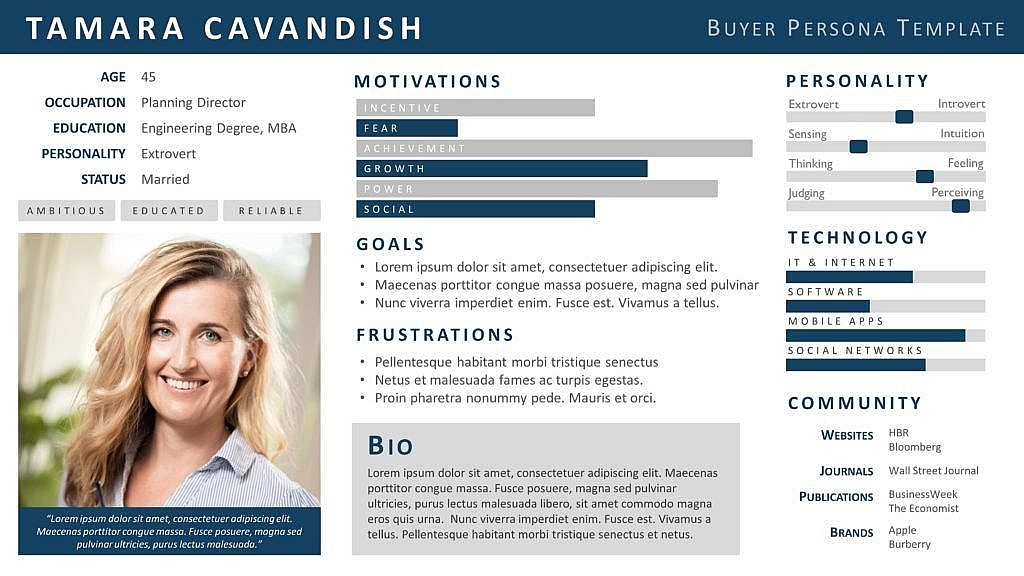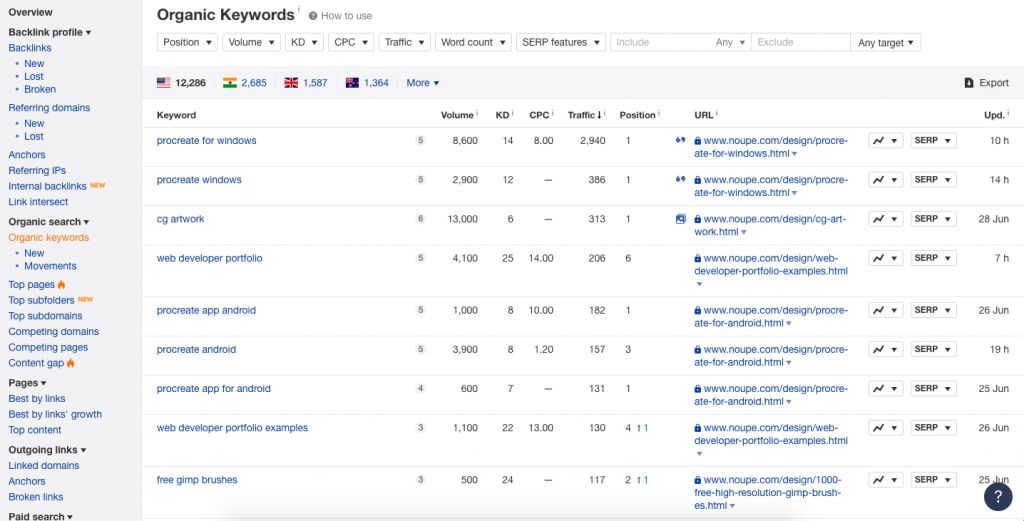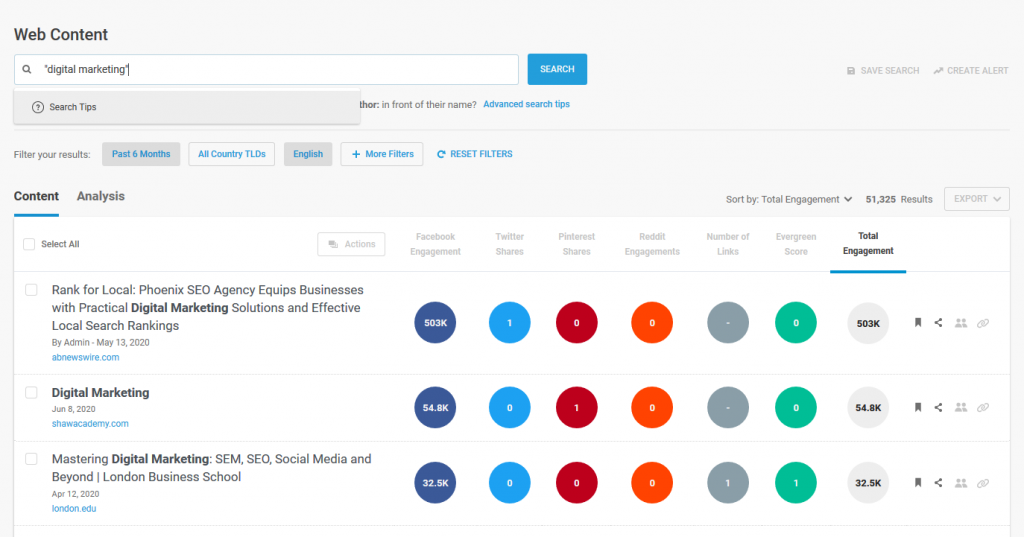What is Competitor Intelligence and How Do You Do It?

Competition is a fact of life for business owners. You can’t avoid it. Regardless of what you do, you’re sure to be competing with other companies.
Fortunately, there are tricks and tools available to help you stay one step ahead of the competition and claim your share of the market. This process starts with understanding who your direct competitors are and what they’re doing.
Enter competitor intelligence.
What is competitor intelligence?
Competitor intelligence, also called competitor analysis, is the process of studying who your competitors are and what they do. It involves analyzing their strengths and weaknesses to learn from both their successes and failures.
Competitor analysis should form a central component of your business and marketing strategy. If you ignore it or do it halfheartedly, you are missing a significant opportunity. It provides you with a more rounded understanding of the landscape in which you’re operating, giving you vital insight and new ideas that will help you to stand out.
How do you do competitor intelligence?
Exactly how you do your competitor analysis will depend upon the nature of your business. In this section, I’ll talk you through some of the most effective strategies I’ve found and some of the tools you can use.
Work out who your competitors are
I know this seems obvious, but it’s perhaps the most critical step. Not every company operating in your industry will be a direct competitor. Myk Ponos defines a direct competitor as another company serving the same customer with the same problem and solving that problem with a similar product or service to yours.
I suggest focusing your initial competitor analysis on these direct competitors. You can always branch out later to include indirect threats, such as companies solving the same problem with a very different product or service, or using a similar product or service to solve a different issue.
Start with a company overview
Before you can carefully analyze a competitor, you need to understand the similarities and differences between their company and yours. So make a note of their founding date, number of employees, and annual turnover.
This information helps to contextualize the rest of your competitor analysis. If you’re running a startup, you will be in a very different position to a company that has been going for a decade. However, you can still draw insight and inspiration from that company’s current situation and the path it took to get there.
Put yourself in the position of the customer
Ultimately, your goal is to have customers choose your business over your competitors’. Therefore one of the best competitor intelligence strategies is to put yourself in the customer’s position. By stepping into their shoes, you can understand their needs and what would make them choose one company over another.
Start with your customer persona. This should give you a clear picture of your ideal client. Fill in some information about their demographics, professional position, what problems they have, and how your product solves those problems.

Once you know who your customer is, look at your customer journey. What stages does a customer go through between awareness (learning that your business exists) and conversion (making a purchase)?
How does your customer journey compare to your competitor’s? Ideally, you should sign up for their mailing list or go through the process of making a purchase on their e-commerce site, paying close attention to each phase of the journey. Is the process easy and painless? Are there any apparent chokepoints? Make a note of what you learn and use the information to improve your processes.
Product or service comparison
If you and your competitor make similar products or offer similar services, it makes sense to conduct a side-by-side comparison of the products or services and their features. This process will show up any weaknesses in your offering.
Ask yourself these questions about your own and competitors’ product or service:
- What is the retail price? Do customers usually say it is too expensive, very cheap, or priced just right?
- Are there any unique features, and how have these been received by customers?
- Is the product reliable, or does it tend to break or malfunction?
- What is the after-sale customer service like?
- How visually appealing is the product (or the user interface of the service?)
- Is it “one-size-fits-all,” or are elements customizable?
Be brutally honest. There is no point in doing competitor intelligence if your goal is to reassure yourself that you’re the best. Be as objective as you can about your strengths and weaknesses.
Everything you learn will help you improve your offering and make the next product or service you release even better.
Competitor keyword analysis
Search engine optimization (SEO) is essential if you want your business to stand out online. You need to implement a robust SEO strategy to ensure your site ranks highly in search engine results for the relevant keywords, allowing prospective customers to find you.
Therefore, competitor analysis should form part of your keyword research process. Ahrefs is a fantastic tool that will show you the traffic figures, backlink profile, and best performing keywords for any website.
Enter your competitor’s website URL, and use the “organic keywords” tab to see which pages and keyword searches generated the most clicks.

You can also use Moz’s Keyword Explorer and its Ranking Keywords analysis. The Ranking Keywords analysis allows you to make a direct comparison between your site and competitor’s. By making a direct comparison of keyword use and search engine rankings, you can spot keyword gaps.
Analyze PPC spend
Google Ads is a pay-per-click (PPC) advertising solution that allows website owners to “bid” for spaces at the top of search engine results for specific keywords. Here’s an example:

As you can see, the first four results are all PPC ads.
Analyzing your competitors’ PPC spend and their chosen keywords will give you valuable information around which to build your campaigns, including which keywords work well and which to avoid. SEMrush is a fantastic all-in-one SEO tool which comes into its own for competitor PPC research. This tool will show you your competitors’ PPC budgets, traffic, and top keywords.
Social media analysis
Love it or hate it, social media is not going away any time soon. With 97% of digital consumers using social media each month, it’s an essential sales and marketing channel. Therefore, you should spend time analyzing what your competitors are doing on social media and how well it works.
First, check which platforms they’re on. Study metrics including number of followers, audience growth or stagnation, and the average number of engagements on each post. Do they have thousands of followers but very little engagement? This implies that their content is not of a high enough standard. Do they have a small but loyal and engaged following? Does one channel perform significantly better than others?
Once you’ve analyzed the social media presence of a few of your direct competitors, perform a SWOT analysis - a breakdown of the Strengths, Weaknesses, Opportunities, and Threats in your social media strategy.

BuzzSumo is a useful tool for competitor social media analysis. This tool allows you to see your competitors’ most popular content based on specific keywords, broken down by platform:

You can use this analysis to identify both threats and gaps you may be able to fill. The paid version of Buzzsumo gives you detailed competitor reports, including content format, length, publication date, and average shares on each platform.
Content strategy analysis
Perhaps I’m biased as an SEO marketer, but I still believe content is king. Therefore, take the time to analyze your competitors’ content strategy and how well it is working.
Does your competitor have a blog, and what content do they publish on it? Do they publish e-books, whitepapers, podcasts, videos, or any other form of content? Identify gaps in their coverage that you could fill in and what resonates with their audience. Use Moz’s Link Explorer and the Top Pages tab to see which pages on your competitors’ site are linked to the most often.
Pay particular attention to content your competitors are giving away for free. Offering value from the moment someone lands on your website for the first time is one of the most crucial aspects of successful marketing. Therefore, it is essential to ensure your free content is second to none if you expect your target customers to part with their hard-earned cash.
What not to do
Don’t be tempted to steal or directly copy your competitors’ ideas. The goal of competitor intelligence is to gain insight and inspiration, not to mimic exactly what other companies are doing. Not only is this a waste of time, but you could run into legal issues.
Other competitor intelligence mistakes to be aware of include focusing your efforts either too broadly or too narrowly, and conducting an analysis once and then forgetting about it. Your competitors will keep growing and innovating, and you must keep on top of what they’re doing if you want to keep your edge.
Competitor intelligence is time well spent
Competitor intelligence might seem like a lot of work. However, if you invest time in it, you will reap the benefits.
Understanding the full context of the marketplace in which you’re operating is vital to business success. Therefore, understanding your competitors is a critical piece of that puzzle.
No business exists in a vacuum. By keeping an eye on what your competitors are doing, you’ll be better equipped to develop fantastic products, provide amazing customer service, and ensure your digital marketing strategy is up to scratch.
Featured Image by pch.vector on Freepik
